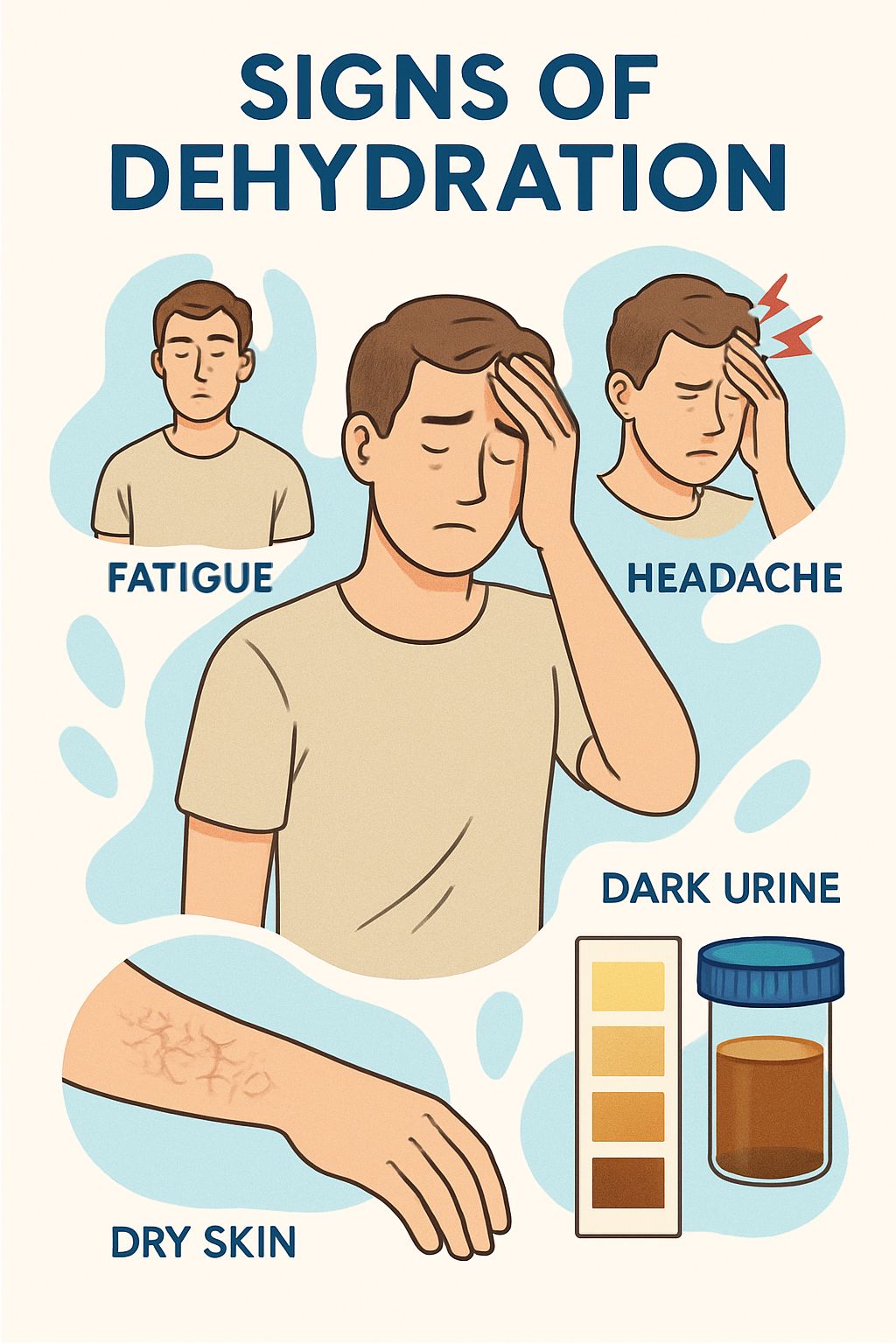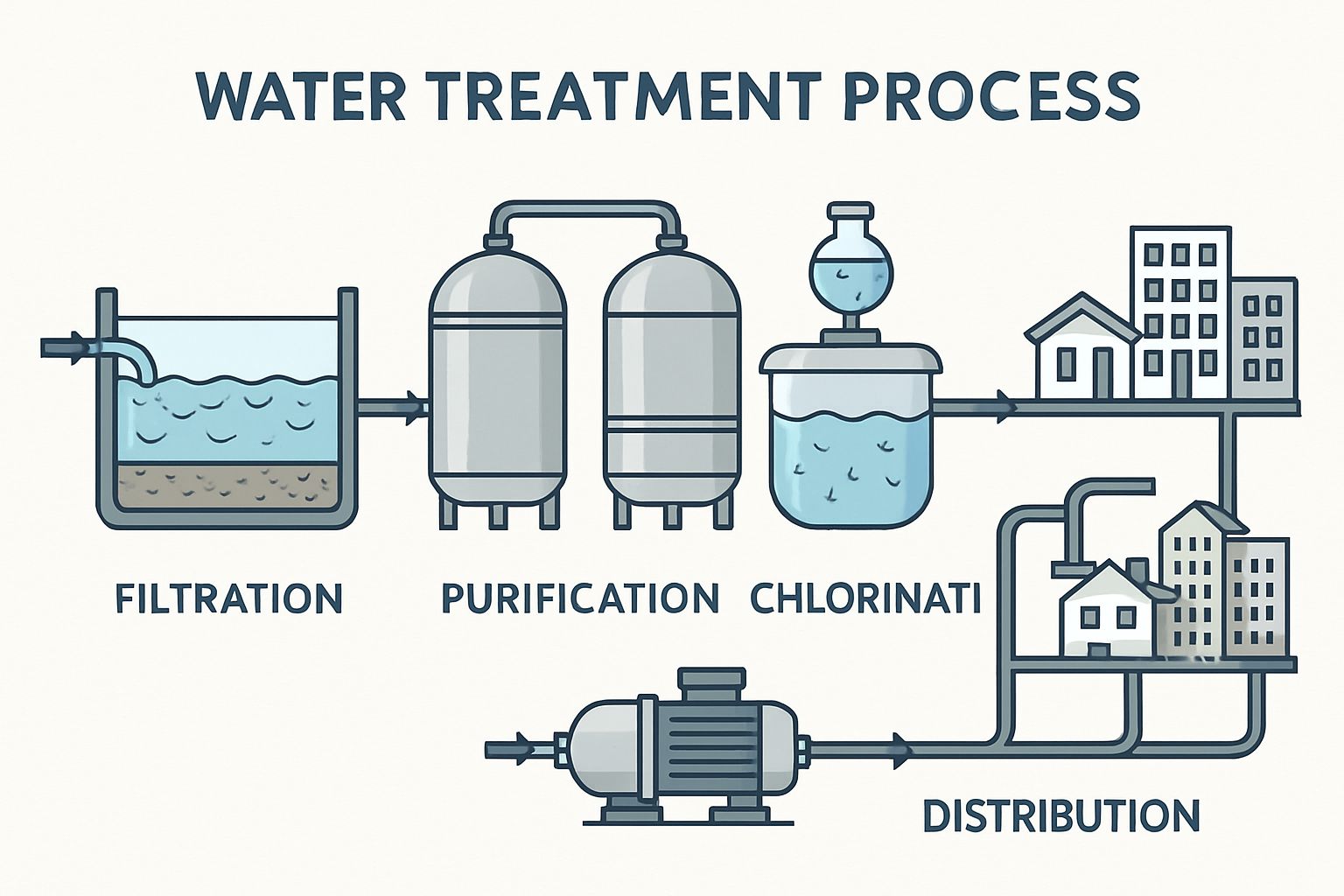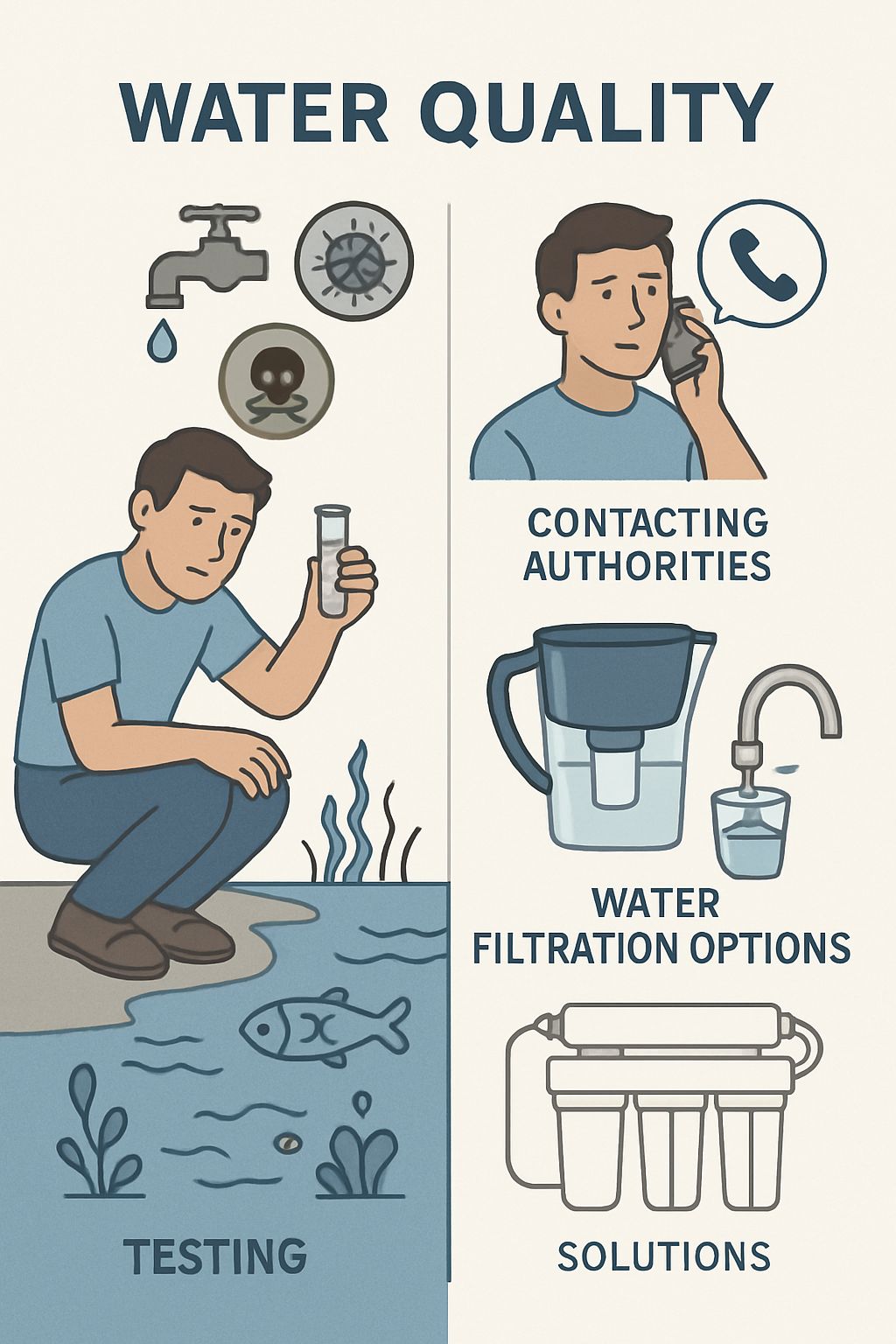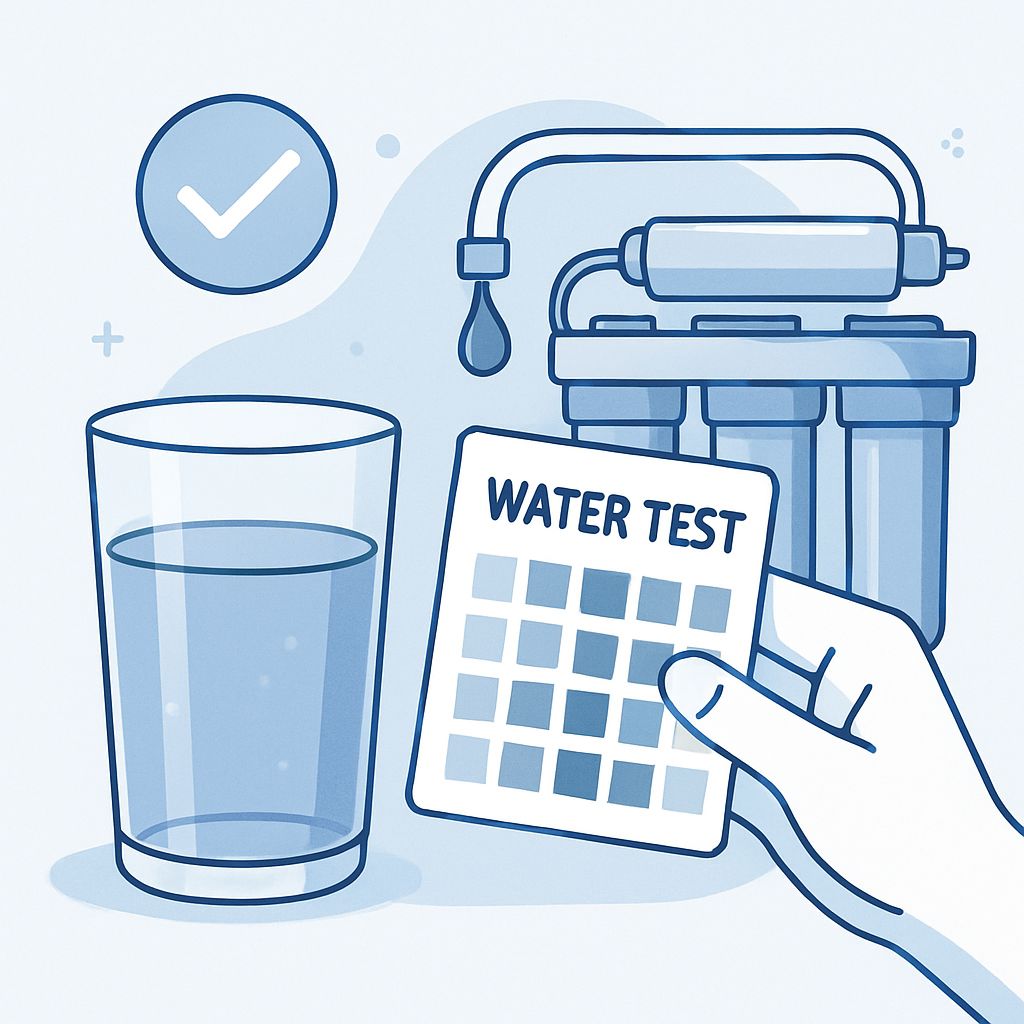
Signs You’re Not Drinking Enough Water
Water is life. It’s a simple truth we often overlook in our busy lives. For many of us, a glass of water is just a tap away. But for millions around the world, access to clean, safe drinking water is a daily struggle. At the Australian Relief Organisation (ARO), we’ve seen firsthand how transformative clean water can be. With over 205 water projects completed across more than 30 countries, we’ve helped over 1 million people gain access to this essential resource.
Our work in communities across Africa and Asia, from the villages of Tanzania to the remote areas of Cambodia, has shown us the devastating effects of water scarcity and dehydration. This experience has given us a unique perspective on the vital importance of hydration for health, well-being, and community development.
This article will explore the common and not-so-common signs that you might not be drinking enough water. Understanding these signs is the first step to better health, not just for you, but for the global community we all share.
1. You’re Constantly Tired or Fatigued
Feeling sluggish? Before you reach for another cup of coffee, consider if you’re drinking enough water. Fatigue is one of the most common signs of dehydration. When you’re dehydrated, your body has to work harder to circulate blood, which can leave you feeling drained and exhausted.
Dehydration reduces the volume of blood in your body, which means your heart has to pump harder to deliver oxygen and nutrients to your cells. This extra work can take a toll on your energy levels, leaving you feeling tired and unmotivated. Even mild dehydration can have a significant impact on your physical performance, reducing your endurance and strength.
How ARO Helps: In the communities we serve, access to clean water means more than just quenching thirst. It means children have the energy to attend school and learn, and adults have the strength to work and provide for their families. Our water wells in countries like Malawi and Mali are not just sources of water; they are sources of energy and vitality for entire communities. For example, in a village in rural Malawi, the construction of a new ARO well meant that women and children no longer had to walk for hours to collect water. This saved them precious time and energy, which they could then devote to their education, their families, and their livelihoods.
2. You Experience Frequent Headaches or Dizziness
That nagging headache could be your body’s way of telling you it needs more water. Dehydration can cause your brain to temporarily shrink from fluid loss, leading to headaches and dizziness. Even mild dehydration can have a noticeable impact on your cognitive function.
When your brain lacks water, the protective fluid that surrounds it decreases, which can cause it to pull away from the skull. This can trigger the pain receptors in the surrounding membrane, leading to a dehydration headache. These headaches can range from mild to severe and are often accompanied by other symptoms, such as dizziness and lightheadedness.
ARO’s Impact: By providing reliable sources of clean water, we help prevent the chronic dehydration that can lead to these and other health problems. A simple water well can mean the difference between a life of chronic pain and a healthy, productive future. To understand more about the physical effects of hydration, read our post on What happens to my body when I drink more water?.
3. Your Urine is Dark Yellow or You’re Not Urinating Often
One of the easiest ways to check your hydration levels is to look at the color of your urine. If it’s a dark yellow or amber color, it’s a clear sign that you need to drink more water. Ideally, your urine should be a pale, straw-like color. Urinating infrequently (less than 4–6 times a day) is another indicator of dehydration.
Your kidneys are responsible for filtering waste from your blood and excreting it in your urine. When you’re dehydrated, your kidneys try to conserve water by concentrating your urine. This is what gives it a darker color. If you consistently have dark-colored urine, it could be a sign that your kidneys are under stress.
A Global Perspective: In many of the regions where ARO works, waterborne diseases are a constant threat. The lack of clean water means that even when people can find water, it’s often contaminated and unsafe to drink. Our projects, which include drilling deep wells and installing water filtration systems, are crucial in providing water that is not only accessible but also safe, protecting communities from diseases like cholera and dysentery. The question of Is my tap water safe to drink? is a luxury many do not have.
4. You Have Dry Skin, Lips, and Mouth
Your skin is your body’s largest organ, and it needs water to stay healthy. Dehydration can lead to dry, flaky skin, chapped lips, and a dry, sticky mouth. While lotions and lip balms can provide temporary relief, the only long-term solution is to hydrate from the inside out.
Water is essential for maintaining your skin’s elasticity and moisture. When you’re dehydrated, your skin can become dry, tight, and more prone to wrinkles. In severe cases, dehydration can lead to skin cracking and breaking, which can increase your risk of infection.
5. You Suffer from Brain Fog or Lack of Concentration
Feeling forgetful or having trouble focusing? Dehydration could be the culprit. Your brain is made up of about 75% water, so it’s no surprise that a lack of it can impair your cognitive abilities. Staying hydrated is essential for maintaining focus, memory, and overall brain function.
Dehydration can affect your brain in a number of ways. It can disrupt the balance of neurotransmitters, which are the chemical messengers that your brain uses to communicate. It can also reduce blood flow to the brain, which can impair your cognitive performance.
ARO’s Contribution to Education: For children in developing countries, brain fog from dehydration can be a major barrier to education. When children are dehydrated, they can’t concentrate in class and are more likely to fall behind. Our water projects, by ensuring children have access to clean water at school, are helping to create a brighter future for the next generation. A simple well can be the first step in a child’s educational journey.
6. You Experience Muscle Cramps
Muscle cramps, especially during exercise, can be a sign of dehydration and electrolyte imbalance. When you sweat, you lose both water and essential minerals like sodium and potassium. Replenishing these is crucial for proper muscle function.
Electrolytes are minerals that carry an electric charge. They are essential for a variety of bodily functions, including muscle contraction and nerve function. When you’re dehydrated, the concentration of electrolytes in your blood can become imbalanced, which can lead to muscle cramps, spasms, and weakness.
7. You Have Bad Breath or Sugar Cravings
Dehydration can lead to bad breath because saliva has antibacterial properties, and a lack of it can cause bacteria to thrive in your mouth. Similarly, when you’re dehydrated, your body can struggle to produce glycogen, leading to cravings for sugary foods.
Saliva plays a crucial role in maintaining a healthy mouth. It helps to wash away food particles and bacteria, and it also contains enzymes that help to break down food. When you’re dehydrated, your body produces less saliva, which can lead to a buildup of bacteria and a greater risk of cavities and gum disease.
How You Can Help
Recognizing the signs of dehydration in your own body is a powerful reminder of the importance of clean water. For the communities we serve, the impact of water scarcity goes far beyond these symptoms; it’s a matter of life and death.
When you support the Australian Relief Organisation, you’re not just funding a water well; you’re providing a lifeline to a community. You’re helping us to:
- Drill deep-water wells that provide a reliable source of clean water.
- Install water filtration systems to ensure water is safe to drink.
- Implement rainwater harvesting solutions to capture and store this precious resource.
- Educate communities on water management and hygiene to create a lasting impact.
Every donation, no matter how small, makes a difference. Together, we can bring clean water to those who need it most and create a world where no one has to suffer from the devastating effects of dehydration.
Donate Now to Support ARO’s Clean Water Projects
Frequently Asked Questions (FAQs)
Q: How much water should I drink a day?
A: The amount of water you need to drink each day can vary depending on a number of factors, including your age, activity level, and the climate you live in. A general rule of thumb is to drink at least 8 glasses (2 liters) of water a day. However, you may need to drink more if you are exercising or if it is hot outside.
Q: Can I drink too much water?
A: While it is rare, it is possible to drink too much water. This is a condition called hyponatremia, and it occurs when the level of sodium in your blood becomes dangerously low. The symptoms of hyponatremia can include nausea, headache, confusion, and fatigue. To avoid this, it is important to drink water in moderation and to listen to your body’s thirst signals.
Q: What are the best ways to stay hydrated?
A: In addition to drinking water, there are a number of other things you can do to stay hydrated. These include:
- Eating fruits and vegetables that are high in water content, such as watermelon, cucumber, and strawberries.
- Drinking other fluids, such as milk, juice, and herbal tea.
- Avoiding sugary drinks, such as soda and sports drinks, which can actually dehydrate you.
Q: How does ARO decide where to build its water projects?
A: ARO conducts thorough needs assessments to identify the communities that are most in need of clean water. We work closely with local partners and community leaders to ensure that our projects are sustainable and will have a lasting impact. Our focus is on empowering communities to take ownership of their water projects, so that they can continue to benefit from them for years to come. For more on our processes, see our blog on the Water Treatment Process.
Q: What can I do if I have concerns about my local water quality?
A: If you have concerns about your local water quality, the first step is to contact your local water utility. They can provide you with information about your water quality and investigate your concerns. We cover this topic in depth in our blog post: What to Do If You Have Concerns About Your Water?.
Related Project: Clean Water



